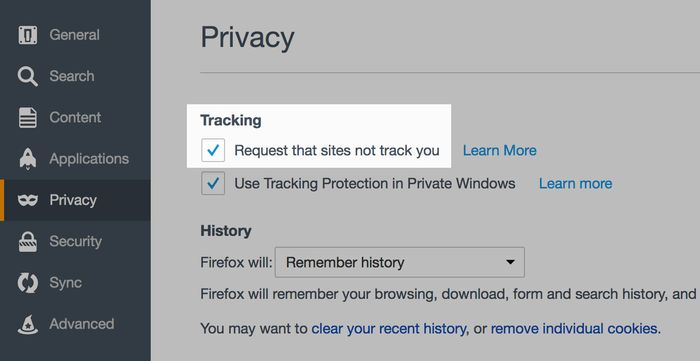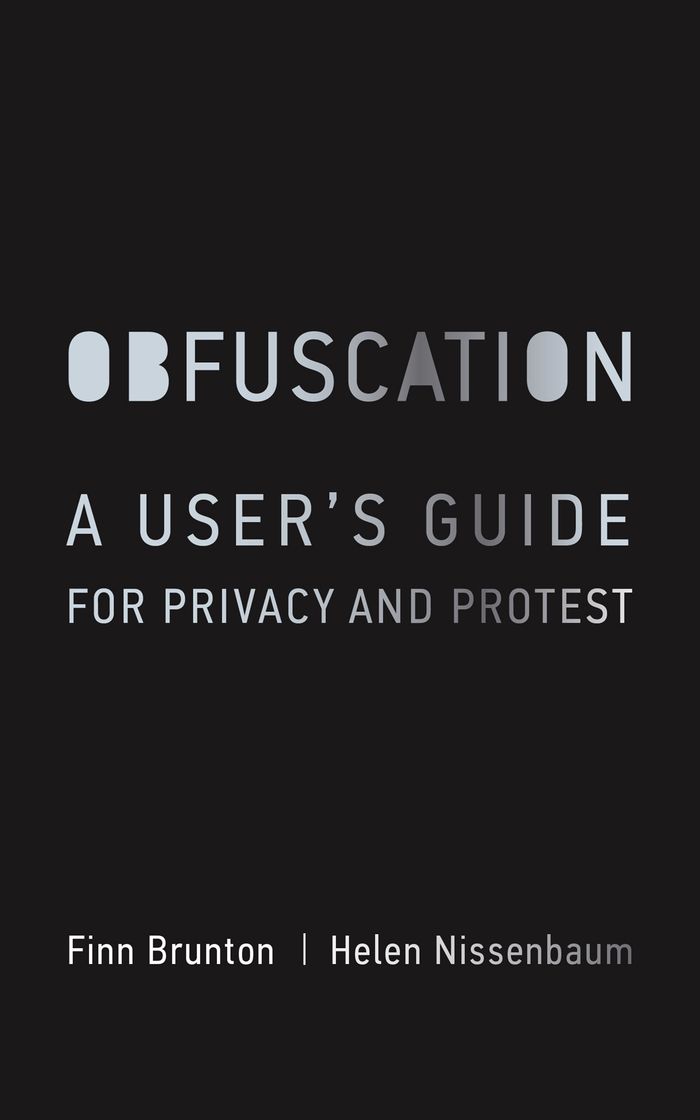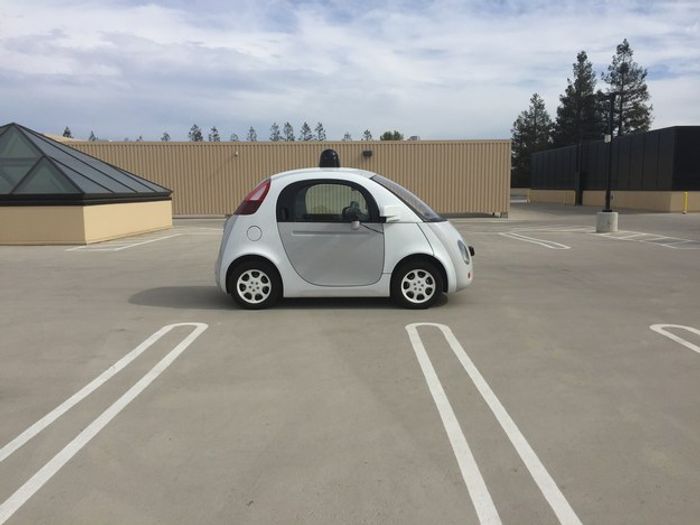I was recently on my friend Benjamen Walker‘s podcast Theory of Everything, talking about digital security.
Surveillance and inaction

I am awash in thoughts and feelings this week. Donald J. Trump will very likely be our next President. This fact has already emboldened hate groups, leaving us to contemplate what the next four years could mean—especially for friends who will likely become targets of bigotry.
Should we go outside and protest? Should we turn inward and lean on our support networks? Do we start thinking about the 2018 midterms? Yes. Yes to all of it. If you need time away from this divisive election, you’ll be welcome to join us when you’re ready. I completely understand, especially if you worked on a 2016 political campaign.
For my part, I am regrouping, considering how I can do more, do better. Some friends have asked me about strategies for resisting surveillance. Digital privacy will become even more important in the coming years, and we should all collectively get better at protecting ourselves.
A very short answer is: switch your texting over to Signal, use a password manager. Start today.
How to escape the advertising bubble
Maciej Cegłowski has interesting things to say about big data and the online advertising business. He argues—persuasively, I think—that the advertising technology (adtech) sector is overvalued. In a recent essay, he describes what will happen when that adtech bubble finally bursts.
The problem is not that these companies will fail (may they all die in agony), but that the survivors will take desperate measures to stay alive as the failure spiral tightens.
These companies have been collecting and trafficking in our most personal data for many years. It’s going to get ugly.
Remember when, in its death throes, RadioShack sold off the customer data of 67 million people? This will probably be worse than that. And a whole lot of the web is built on top of adtech spaghetti business (think: spaghetti code, but for business).
The prognosis for publishers is grim. Repent! Find a way out of the adtech racket before it collapses around you. Ditch your tracking, show dumb ads that you sell directly (not through a thicket of intermediaries), and beg your readers for mercy. Respect their privacy, bandwidth, and intelligence, flatter their vanity, and maybe they’ll subscribe to something.
One way I could see publishers phasing in this more-respectful business model is through existing web browsers’ do-not-track differentiation. Every modern browser has privacy settings that let an individual user opt out of online tracking. That do-not-track preference gets included with each and every web request, but it’s up to the website operator to act on it. As far as I can tell, all adtech companies seem to ignore this preference completely.

Okay, so are you ready for my idea for how publishers can escape the adtech bubble? Stay with me here, because this is a crazy suggestion: if I’ve signaled through my preferences that I prefer not to be tracked, then … I dunno, maybe don’t track me.
A typical ad-driven website relies on dozens of companies to show me slow loading, poorly-customized advertising. But there’s nothing stopping the website itself from simply not letting those companies’ code onto the page.
I would say just switch to dumb (non-tracking) ads for everyone, but I know how this would play out: “it’s too extreme, we can’t afford it!” But here’s the thing, if you think this adtech spaghetti business is going to collapse, you’ll have to start switching traffic over to something else eventually. Why not start out with current and future subscribers (aka “users”) who’ve already indicated they prefer not to be tracked by the adtech industry? Just do what we’ve been asking for in the first place.
Here’s how: if a given visitor has checked the do-not-track box, you’ll be able to detect it. Adjust your ad libraries and CDNs to detect the DNT: 1 HTTP header and then show a small message congratulating yourself, and set aside those ad spots for “artisanal” ads. Once things are rolling along you can ditch the old bloated, crappy ads for everybody else.
You can already tell what proportion of visitors have do-not-track enabled, it’s there in the traffic stats if you look for it. You could pitch this to the higher ups with real numbers, and spin it as a Premium Advertising Experience, like organic fair trade traffic without all the slow bandwidth-bloat and creepy surveillance.
The big challenge, of course, is this type of effort involves cooperation between many departments that may not currently get along well. But getting the ad sales people and the ad tech people and the web developers to get along is important.
Nobody likes working on ads, and I know it’s hard to just get buy-in, let alone actually launch a new thing. But an adtech collapse might be an existential threat, better to get in front of this now rather than wait for it to happen.
Obfuscating online ad tracking
Today I’m headed to Boston to see a talk about a guide to evading surveillance written by Finn Brunton and Helen Nissenbaum. The book is called Obfuscation: A User’s Guide for Privacy and Protest and was recently reviewed in the Guardian, where Nissenbaum is quoted:
Our effort, both with TrackMeNot and AdNauseam, has been targeted at the former. I don’t love advertising but I can tolerate it. When supporters of the current structures of behavioural advertising say this will be the end of all the innovation and free stuff on the web, our response is: no. Although this might happen if advertising itself goes away, it does not require the back-end tracking for survival.

The design for the AdNauseam website is so wonderful, and was created by none other than Mushon Zer-Aviv.
Haunted by Data
Here’s Maciej Cegłowski giving a talk on the hazards of Big Data.
The current model of total surveillance and permanent storage is not tenable.
If we keep it up, we’ll have our own version of Three Mile Island, some widely-publicized failure that galvanizes popular opinion against the technology.
At that point people who are angry, mistrustful, and may not understand a thing about computers will regulate your industry into the ground.
See also: the text version of the talk.
Unfit Bits
Hack the planet your personal fitness device!!
Does your lifestyle prevent you from qualifying for insurance discounts? Do you lack sufficient time for exercise or have limited access to sports facilities? Maybe you just want to keep your personal data private without having to pay higher insurance premiums for the privilege?
Unfit Bits provides solutions. At Unfit Bits, we are investigating DIY fitness spoofing techniques to allow you to create walking datasets without actually having to share your personal data. These techniques help produce personal data to qualify you for insurance rewards even if you can’t afford a high exercise lifestyle.
Made by my friends Tega and Surya. Also be sure to download the DIY guide from Biononymous.me.
Self-driving cars: “utterly inevitable”
Mat Honan wrote about the experience of riding in Google’s cute self-driving cars.

The first time I rode in a fully autonomous car, what really impressed me was when the car saw something that I could not. As I rode down a residential street in Mountain View, the car slowed, for no apparent reason. Yet in the front seat, a laptop showed everything the car could “see.” And up ahead, there was a man, in the street, standing behind a double-parked vehicle. He was concealed from my eyes, but the car detected him. And it slowed down, anticipating that he might step out unexpectedly.
It anticipated this because each and every one of Google robot cars has experienced the totality of everything all its siblings have experienced. Google’s cars have driven a total of 1.2 million miles on the roads. We tend to think of this as combined experience — an aggregate number. But what it really means, effectively, is that every single car has driven that distance, has experienced it. This is a machine that learns. And in addition to that on road time, the cars log, Google said yesterday, 3 million miles every day running scenarios.
This car is a better driver than me, or you, or any of us.
Deep Lab
I am a big fan of pretty much all of the women who appear in this video. It’s worth setting aside 18 minutes and listening to what they’ve been up to. There is also a book, available in both pulp and downloadable PDF formats.
It’s heartening to see all-women teams coming together to produce awesome things. More like this, please!
WikiLeaks Truck at the Whitney Museum

